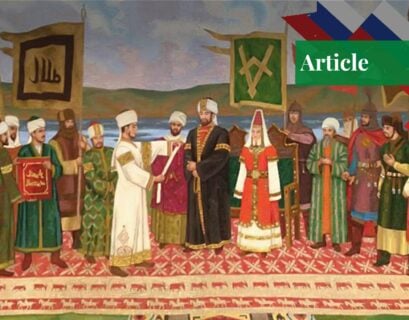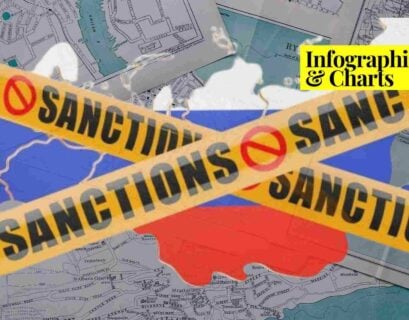Ms Shazeen Waseem is pursuing her LLB from the University of London.
Introduction
One might argue that the 1951 Geneva Convention on refugees has persistently been successful in protecting refugee rights and settling the crisis without undermining state sovereignty and its political independence. However, the convention requires proof of individual persecution by the refugee. Additionally, the receiving states have an onerous administrative procedure FOR examination and verification.
In an age of increased generalized violence, ethnic cleansing, civil wars, and armed confrontations among non-state groups, the question arises of whether these categories are adequate to deal with the rights of the most vulnerable. Besides, the 1951 Convention fails to recognize conditions of extreme poverty and material deprivation as grounds for legitimate asylum. Economic migrants are considered individuals who raise fictitious claims for protection and refuge.
This differentiation between “deserving refugees” and “undeserving migrants” is one that forms an integral part of any state policy. But how valid is this distinction? Inevitably, persecution on the basis of race, religion, nationality, and political opinion results in unemployment, job discrimination, and economic marginalization.
What is a Refugee?
Although the convention has undoubtedly aided refugees in seeking asylum by aiming to provide them with adequate protection and rights, somehow many states have undermined the international law which then makes the current refugee protection regime inadequate for the life and well-being of nearly 70 million displaced persons.
A refugee can be defined as someone who migrates from one state to another to escape persecution, provided they have fulfilled the criteria given under the Geneva Convention or its 1967 protocol. However, it needs to be clarified that a refugee does not have to leave because of the risk, but rather be unable to return to his/her state. Thus, a refugee is one who seeks asylum in another state as they are not protected by the state of their nationality by virtue of which they can claim rights.
International Treaties Concerning Refugees
The current law on refugees can trace its history back to WW2 when millions were displaced. Despite the presence of the League of Nations Convention relating to the International Status of Refugees 1933, and the Convention Concerning the Status of Refugees 1938, there was no comprehensive legal body for the protection of refugees as the states imposed considerable limitations on the implementation of their provisions.
Due to the dire consequences on human rights in the aftermath of the war, the UN High Commissioner for Refugees (UNHCR) was created in 1950 by the UN General Assembly which concerned the protection of refugees worldwide. Subsequently, the 1951 Refugee Convention was adopted which defined the status of refugees and granted them specific rights.
Article 14 of the Universal Declaration of Human Rights states that everyone has the right to seek and enjoy asylum from persecution in other countries. According to the UNHCR, there has been an influx in the refugee population, with over 84 million people around the world having been forced to flee their homes. Among them are around 26.6 million refugees, the highest population on record.
Capacity & Conflicts
The decades of violent conflict and natural disasters in Afghanistan, the conflict eruption in Syria in 2011, the bitter civil war in Yemen, the life-threatening droughts in Somalia, economic instability in Venezuela, and the recent Russian-Ukraine conflict have created one of the world’s largest refugee populations with humanitarian needs skyrocketing for about 80% of the population in need of aid.
Ironically, the countries with the highest GDP per capita, with the most capacity to provide shelter, education, and health care, host less than nine percent of the world’s refugees, whereas the prevailing majority of refugees – nearly 84% – are hosted by poorer countries; countries that are already endeavouring to meet the needs of their own citizens, or are at risk of compromising their own stability.
According to the latest data from the UNHCR published in June 2018, Turkey leads with more than 3.7 million refugees, mainly Syrian refugees; Pakistan shelters 1.4 million; Uganda, 1.2 million; Lebanon, 998,900; Iran, 979,400; and Bangladesh, 932,000. Among European countries, only Germany makes it to this list with 1.1 million refugees. This unfortunate list mirrors the fact that the globalization of the 1951 Refugee Convention has not been accompanied by a corresponding globalization of responsibilities for the fate of the world’s refugees.
It is still the poorer countries in the Middle East and Africa that have to bear the brunt of refugee movements caused by international conflicts and civil wars. Major refugee host countries tend to have much more porous borders because hundreds of thousands, if not millions, of displaced people, can enter the country in a short period of time. Porous borders refer to minimal opportunities for screening and selection, which in turn undermines host country security.
While facing the challenges of housing large and unpredictable numbers of refugees, major refugee-receiving states invite the Office of the United Nations High Commissioner for Refugees to finance the costs of housing, feeding, and social services for refugees. Often, the refugee-receiving countries are praised for their “traditional generosity” and “local absorption capacity”; however, such acknowledgments sound like banality when we comprehend the disproportionate burdens and actual concerns of nations that host the largest numbers of the world’s refugees.
Ideally, greater economic capacity and humanistic principles might lead developed Western nations to take in more refugees, but veritably, a “grand compromise” has been made where the Western nations guard their state sovereignty while channeling financial aid to countries within the South that struggle to rein in the refugee crisis.
Pushing Through State Sovereignty
While human rights are inalienable and should not be granted accordant with the right of citizenship, as part and parcel of the principle of state sovereignty, states retain extensive authority to protect their borders and regulate their own laws. For example, states have the power to determine the entry of non-nationals into their country, detention of migrants, and removal or expulsion of non-nationals.
Although states have the power to control migration flows into, through, and from their territory, they are obligated by international law to do so in such a way that it assures the protection of the rights of individuals within their territory and under their jurisdiction.
While the 1951 Refugee Convention and its 1967 Protocol have been established for adequate and effective refugee protection as well as resettlement, the states ultimately have the ascendancy in this regard. For instance, Canada signed the convention 18 years after its adoption and implemented its obligations in 1976 (through the Immigration Act of 1976).
Predominantly, it is the states rather than the UNHCR that implement procedures for vetting, admitting, and resettling refugees onto their territories. During these lengthy procedures, states and their respective agencies may “dispute the identity of those claiming international protection, doubt the validity of their claims and fear that they are security risks”.
It is unsurprising that host states massively differ in their approach towards refugee recognition, even with individuals of the same nationality who are seeking refuge under the same conditions. The notion of state sovereignty also poses a threat of refugee expulsion from host states to pursue their foreign policy goals within their neighbourhood and to regulate political relationships with superpowers interested in regional stability.
Scholars have also suggested that states are more hospitable to refugees who share a common ethnic, religious or cultural background, while host states with more closed societies and ethnic rivalries with refugees are more likely to expel or threaten to expel refugees. Likewise, some scholars argue that refugees depress local economies, hence raising the risk of governments threatening refugee expulsion during economic recessions.
Perhaps the most frequently cited reason for mass expulsions of refugees is national security. The wealthier states tend to view refugees through a humanitarian lens when they are abroad, but view them as a security issue when they enter their country. Other studies have established that refugee flows increase the likelihood of spreading civil war due to the expansion of rebel group networks by facilitating transnational flows of weapons and soldiers, hence shifting the ethnic makeup of a host country.
Recommendations
A strengthened partnership between all stakeholders and a clearer understanding of their roles is an absolute necessity to counter the refugee crisis. While it cannot be denied that it is a state’s sovereign duty to protect the interests of its own population and its borders from abuse, a state also has humanitarian responsibilities towards refugees and other victims of forced displacement.
It should be a pressing priority of the states to commit themselves to establishing asylum systems that responsibly identify a refugee, one who is otherwise in need of protection, and one who is not deserving of protection and should be rejected and returned home in a safe and dignified manner.
Another imperative protection partner is the judiciary. Pivotal judicial interventions by national courts highlight the real and true meaning of the notion of “protection” for refugees by ensuring that all administrative actions taken by a state meet the basic principles of fairness and due process, and that refugees and asylum-seekers are treated in a fair, dignified and humane way throughout their time of refuge.
Conclusion
The current refugee crisis shows no mark of decline; conflicts from Syria to Yemen to South Sudan continue to force thousands of people from their homes every day. Almost 23 million people – more than half of them children – have crossed borders in search of safe asylum. Some refugees risk falling prey to human trafficking, migrant smuggling, and other forms of exploitation.
Once settling in and starting a new life, many face issues like racism, xenophobia, and discrimination. It is also worth noting that a power vacuum has been created by the US withdrawal from the international refugee domain, and hence it should continue to be filled with those states willing to take their humanitarian obligations more actively.
To uphold refugee rights while safeguarding state sovereignty, migration management laws can work to enhance the sovereignty by developing laws and practices that protect the human rights of irregular migrants, such as victims of trafficking and smuggling, which will enable the states to better address the issues of corruption and transnational organized crime.
As established above, while one can observe a surge in states’ tenacious actions to protect their borders, the states’ commitment to collective responsibility in refugee protection should not be left derelict.
If you want to submit your articles and/or research papers, please check the Submissions page.
The views and opinions expressed in this article/paper are the author’s own and do not necessarily reflect the editorial position of Paradigm Shift.


















